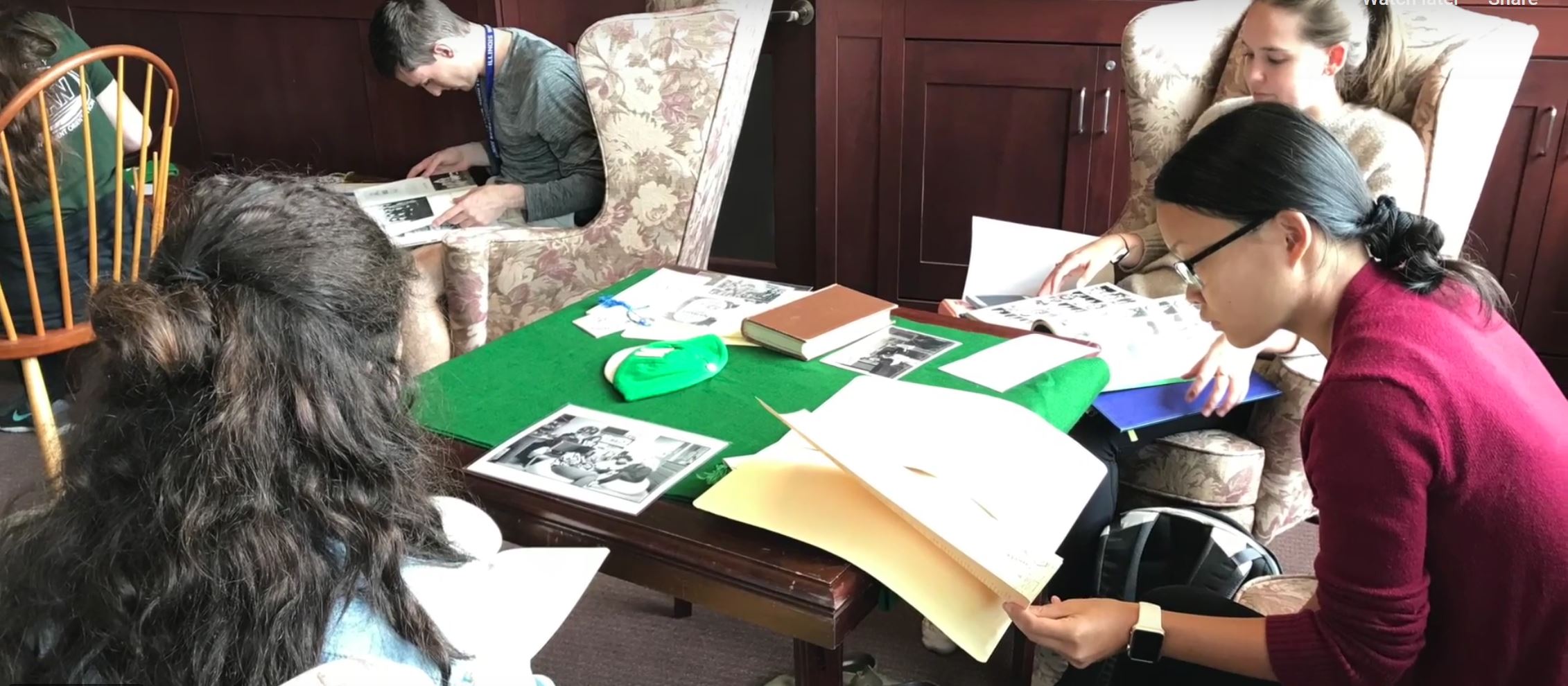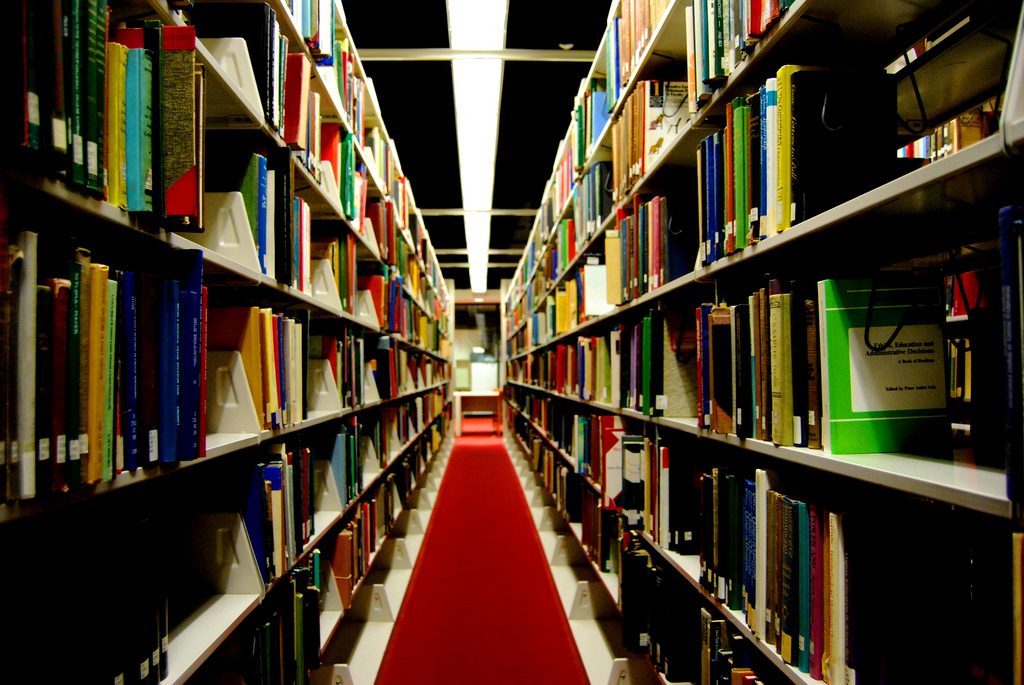
While the library is always a key resource for students and faculty exploring Illinois Wesleyan University’s Annual Intellectual Theme, opportunities abound for library engagement in the coming year with our campus focus on the theme of Fact or Fiction?
The IWU mission statement places the nurturing of a commitment to critical thinking and a “spirit of inquiry” among the central goals of a liberal education, and these have been essential to the development and impact across the curriculum of The Ames Library’s information literacy program. Working with partners in Academic Affairs and Student Affairs, our librarians have established student learning outcomes designed to complement and extend the distinctive commitments of our undergraduate education program and to demonstrate why information literacy and critical thinking skills are essential to the development of students as engaged citizens in an informed democracy. And, while the ability “to discern fact from fiction” has always been a foundational goal of education in a democracy, our focus on this theme in 2019 is especially timely, as advances in information technology and the expanding acceptance of “alternative facts” in a “post-truth” environment have raised new questions about what is “true,” about the nature of scientific authority, and about the ethics of creating and disseminating information in an increasingly polarized political environment.
In a recent article, researchers from Project Information Literacy reported on a national study of the ways in which college students discover, discuss, and engage with news and current events, as well as the factors influencing their determination of the credibility of those sources. They found that the classroom offers an important opportunity for students to develop a critical thinking framework for their “news habits,” both as students and as lifelong learners. Discussing the news and news sources as part of the curriculum, they continue, can promote student awareness of the ways in which information is constructed, both commercially and socially, disseminated through face-to-face, print, and (increasingly) digital media, and employed in our society. Information literacy skills related to the news media can form a basis for collaboration among librarians, classroom faculty, and student affairs educators, as well as another means by which colleges and universities can prepare students for a lifetime of civic engagement, which is, of course, another foundational goal of a liberal education.
The Ames Library faculty and staff will be working with colleagues throughout the year to support the study of this year’s “Fact or Fiction” theme in the classroom and through related exhibitions and programs. Working with colleagues in Information Technology Services, we will also explore connections between this year’s theme and the concept of “digital literacies,” including data literacy, media literacy, and the capacity to “[assess] social and ethical issues in our digital world.”
The Annual Intellectual Theme is coordinated at Illinois Wesleyan University by students, faculty, and staff serving on the Intellectual Theme Working Group, whose members work together to identify “an idea or theme with the potential to engage thinking, creativity, and dialogue through multiple disciplinary lenses and interdisciplinary approaches” across the curriculum and co-curriculum.




